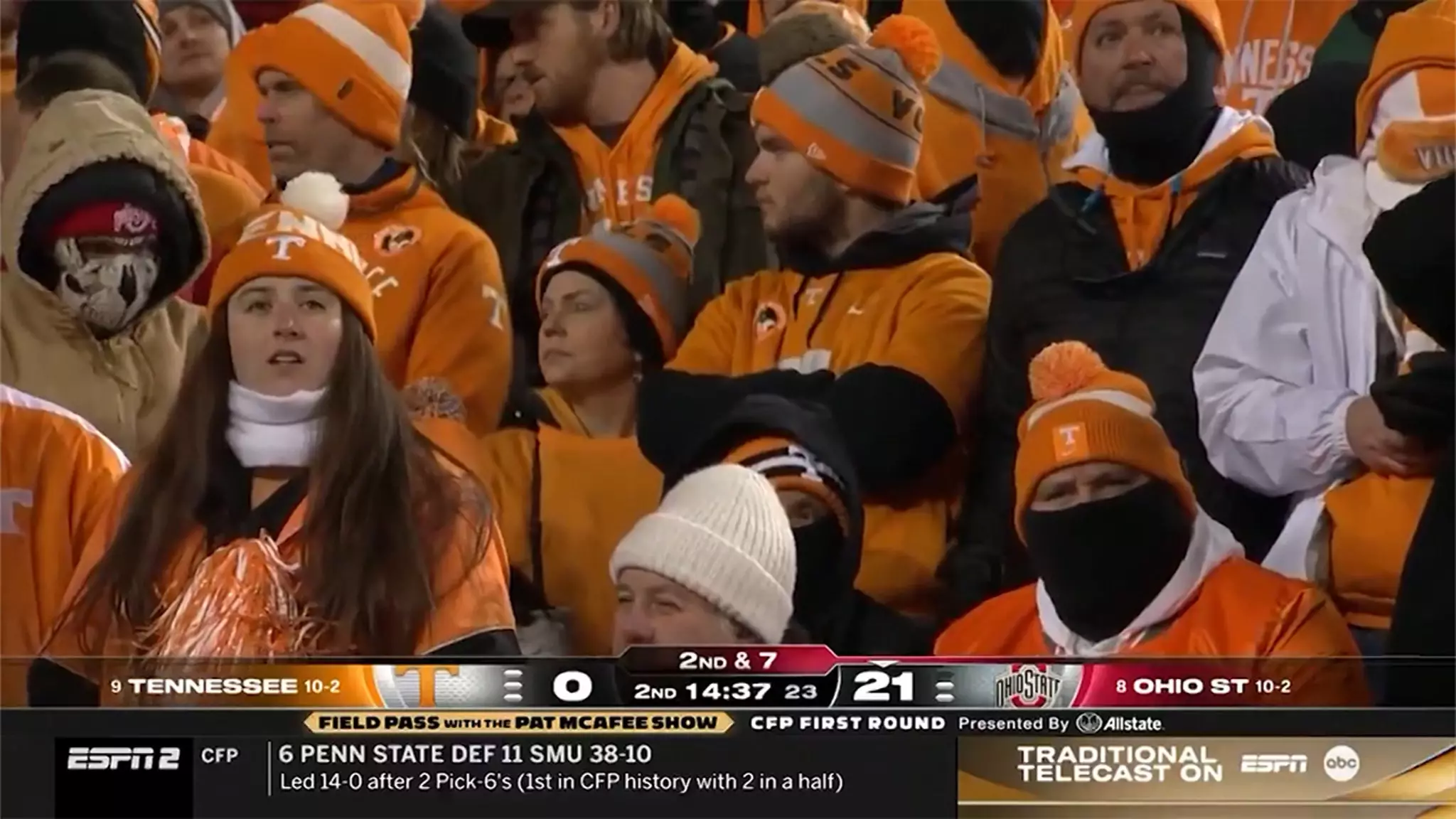In a decisive outing during the College Football Playoff, the Ohio State Buckeyes demonstrated their prowess by overwhelming the Tennessee Volunteers. The matchup, which unfolded under the bright lights of a high-stakes environment, showcased not only the athletic capabilities of the teams but also the evolving nature of sports broadcasting. As Ohio State took a commanding lead, the game became more than just a contest of skill; it was thrust into the spotlight of cultural commentary, driven primarily by the unique presentation from ESPN’s alternative broadcast.
ESPN’s decision to feature “The Pat McAfee Show” during the playoff game was indicative of a growing trend in sports media: the shift from traditional commentary to more entertaining, informal analysis. McAfee, along with his lively crew, has developed a substantial following, largely due to their humorous, and at times provocative, takes on sports events. This approach resonates particularly with a younger demographic, eager for a more relatable viewing experience. However, the loose format also opens up the possibility for controversy.
During the game, McAfee’s sidekick, Boston Connor, made a startling remark regarding a passionate Ohio State fan amidst the chaos of Tennessee’s down streak. His off-color comment about a fan known as “Big Nut” not only added shock value but also sparked immediate backlash—a testament to how swiftly the sports world responds to controversial humor. Such moments illustrate the thin line between entertainment and propriety in modern sports broadcasting.
The aftermath of Connor’s remark was immediate and palpable, with many viewers turning to social media platforms to express their outrage. Comments ranged from calls for a return to professionalism in sports commentary to criticism of McAfee’s appeal to base humor. The reactions highlighted a divide in audience expectations: while some craved the authentic, unfiltered approach, others found it challenging to reconcile such antics with the seriousness of collegiate athletics. The choice to host segments that prioritize entertainment over decorum raises questions about the future of sports commentary.
Moving forward, the challenge is how networks like ESPN will navigate this landscape where humor has become an integral part of sports viewing. McAfee and his crew, despite polarizing opinions, represent a shift towards a more dynamic interaction between audiences and commentators. Their presence indicates a recognition of sports as not just a game, but a cultural event that can spark conversation, controversy, and community engagement.
The Ohio State versus Tennessee playoff game served not only as a demonstration of athletic excellence but as a microcosm of the evolving role of broadcasters in sports. As fans demand more relatable and entertaining content, the balance between levity and respect within the realm of sports commentary will continue to be under scrutiny. The real question is whether audiences ultimately prefer a polished presentation or a more raw, humorous engagement with the games they love.

Leave a Reply